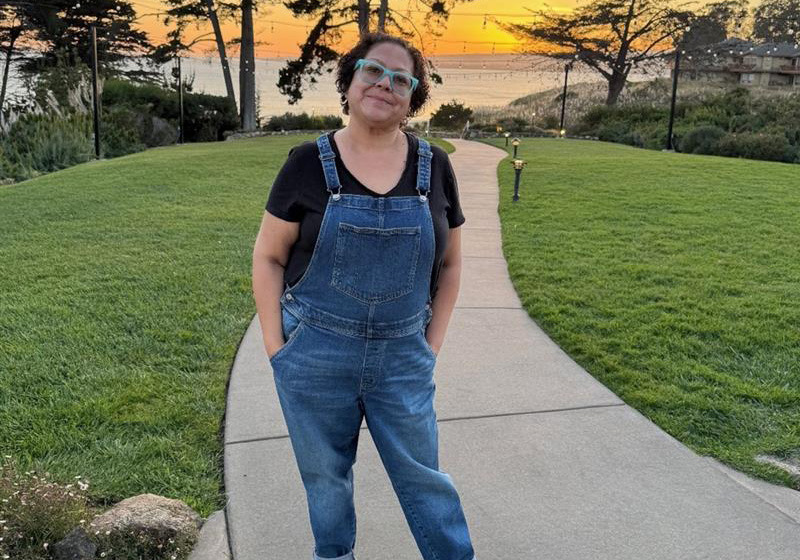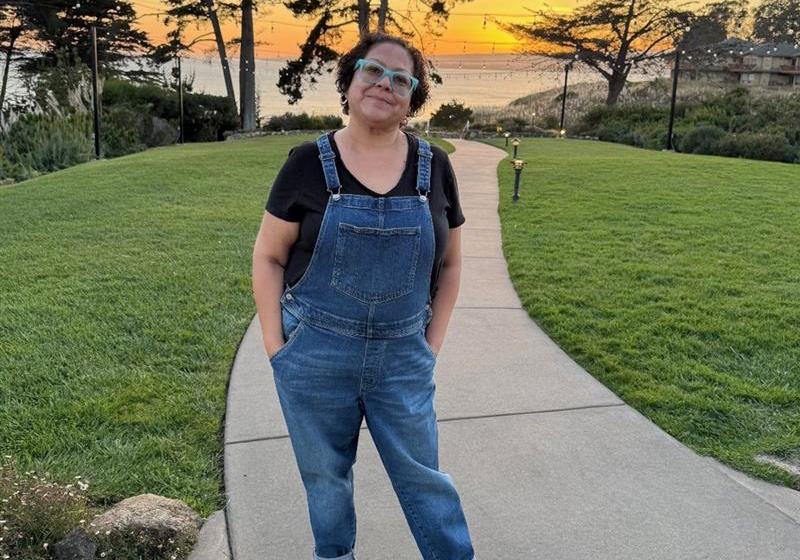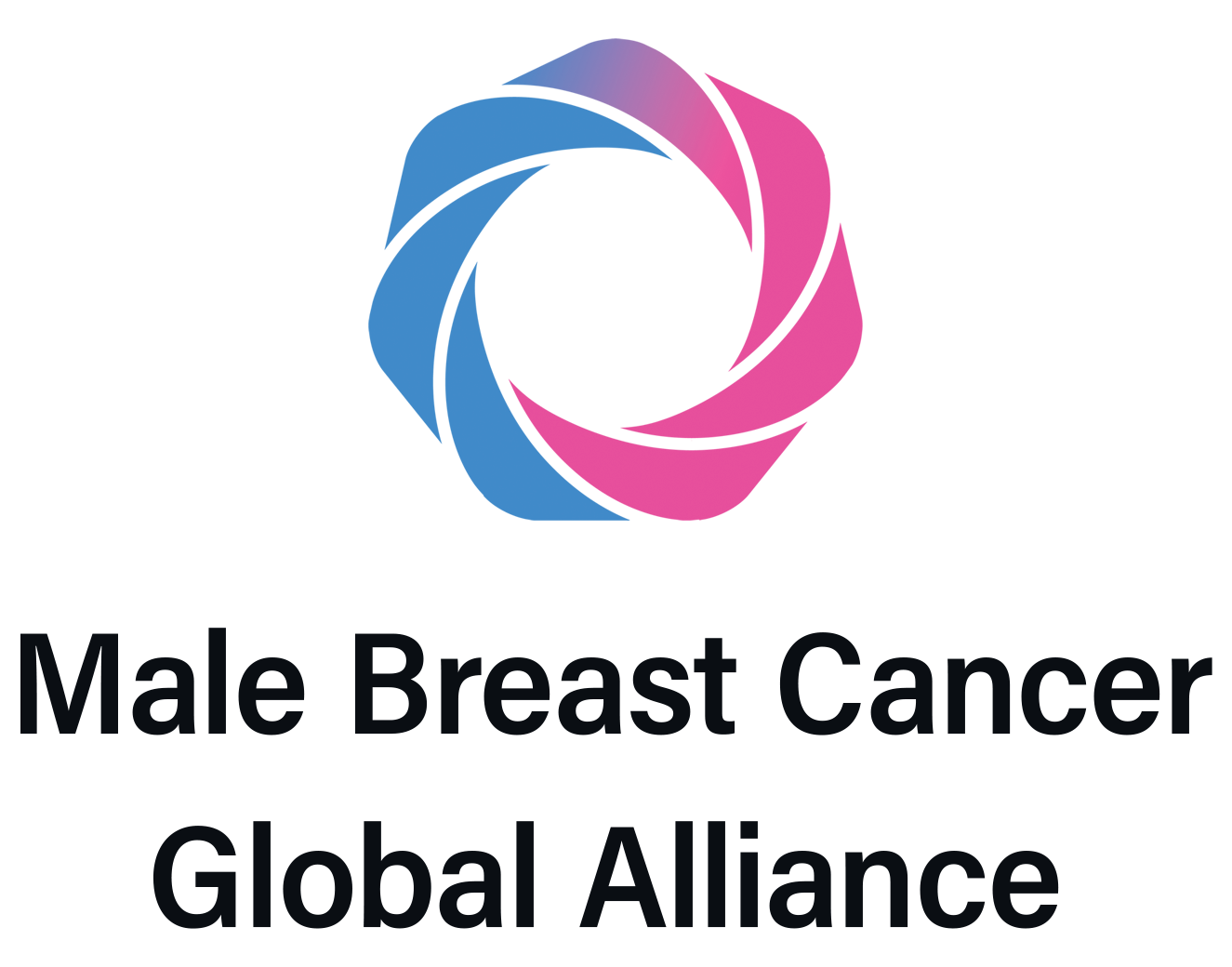It Takes Everything to Look This Okay: A reflection on living with metastatic breast cancer and the hidden cost of appearing "okay"
By Vanessa


The Disconnect Between Appearance and Reality
Living with metastatic breast cancer (mBC) is a full-time job. One that feels like it never ends, never clocks out, and doesn’t take holidays. It can be an invisible illness in more ways than one— not just because it’s happening inside our bodies, but because the outside doesn’t always reflect the struggle that we feel. Some people say, “But you look great!”; and while it may be well-meaning, it can sometimes feel like a slap in the face when you're barely holding yourself together.
Looking good doesn’t necessarily mean feeling good. For some of us living with mBC, appearances can feel carefully maintained; not because we feel fabulous, but because we’re trying to reclaim even a small sense of normalcy, confidence, or control while living with a disease that’s trying to kill you from the inside out.
The Emotional Toll of Looking “Fine” When You’re Not
Some people assume that weight loss equals health, or that looking thinner equates to doing well – but that is not always the case. There’s a strange kind of guilt that settles in when you’re chronically ill, but don’t “look” it. When people tell you that you look healthy, or glowing, or that you’re “doing amazing” – it can leave you frozen. Sometimes I just smile and nod, unsure how to respond. Because on the inside, I might be in pain. I might be exhausted from treatment. I might be carrying the weight of uncertainty, of scans and side effects, of the mental gymnastics required just to get out of bed.
And yet, when I post a picture or show up to an event, people assume all is well. But what they don’t see is what it takes just to show up. The weeks of managing symptoms. The sleepless nights. The emotional energy spent pretending things are “normal.”
Metastatic cancer doesn’t always come with a shaved head or a hospital gown. Sometimes it comes with clean hair, lashes done, a cute outfit, and a body that’s fighting for its life underneath it all. That disconnect can be incredibly isolating. It can make me feel like I have to prove my illness because I don’t fit the picture of what “sick” is supposed to look like.
The Hidden Costs of Looking “Good”
For many of us living with mBC, “looking good” isn’t effortless. It can be expensive, exhausting, and sometimes even painful. Wigs, lashes, skincare routines, nail appointments, undergarments that hide scars, swimsuits designed for post-surgical bodies, clothing that conceals ports – all of which can be pricey and hard to find. Then there are the prosthetics, like the specialized “foobs” (fake boobs) that help many women feel symmetrical again after surgery. These items are highly specialized and come with a price tag that most people aren’t aware of.
These things aren’t about vanity. They’re about identity. They’re armor. They can help people living with mBC feel a little more like themselves in bodies that are constantly shifting.
There’s power in reclaiming your appearance when so much else feels out of your control, but it is not easy. Sometimes, it feels like the emotional cost is just as high as the financial one. You put on the wig, the makeup, the outfit, just to hear someone say, “You don’t look sick at all!” ... but we are sick. And we’re also humans, just trying to feel like ourselves, trying to feel seen.
Just because someone looks a certain way on the outside doesn’t mean they feel that way on the inside. It can be a strange and lonely disconnect when your suffering feels invisible to others, and their well-meaning words can feel like they miss the mark.
So, What Are Some Things You Could Say to Someone Living With mBC?
- “I’m glad to see you today.”
- “How are you feeling really?”
- “Is there anything I can do to support you?”
- “I admire how strong you are.”
- “I love spending time with you.”
It doesn’t have to be poetic. It just needs to be real.
We want people to acknowledge the full picture, not just the surface. Sometimes the kindest thing someone can say is simply, “I see you.” Not because we’re dressed up but because they’re choosing to look beyond appearances and into the truth of our experiences.
To me, empathy lands a lot better than empty praise. And when someone takes the time to listen, to really listen, it means the world.
Show Us You See Us
Beauty isn’t in the wig, the lashes, or the perfectly filled-in brows. It’s in the way we choose to show up, even when we’d rather not. It’s in our quiet resilience, our worn-out sweatpants, our medicated faces, and our scarred bodies.
For those of us living with metastatic breast cancer, redefining beauty isn’t only a mindset, it’s how we endure. We learn to find worth in our existence, not our aesthetics. We embrace softness over perfection, rest over hustle, and peace over performance.
Some of us still wear the wigs, swipe on mascara, or slip into a flattering outfit; but we don’t do it for others, we do it for ourselves. Because sometimes looking “good” is a small act of defiance, or a tender gift we give to ourselves on a hard day.
To me, real beauty is how we carry each other. It’s our dark humor. It’s our inside jokes. It’s sitting together in silence and still being seen. It’s knowing that no matter what the world sees on the outside, we know who we are – and we don’t owe anyone an explanation.










